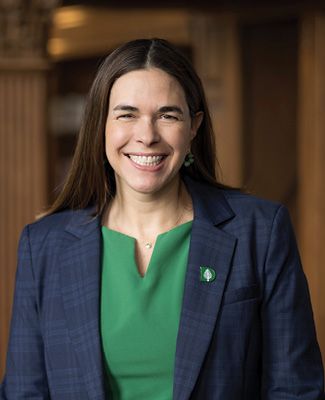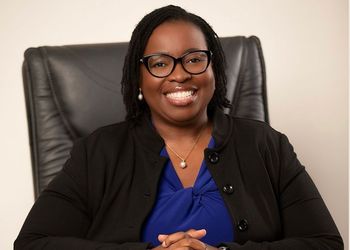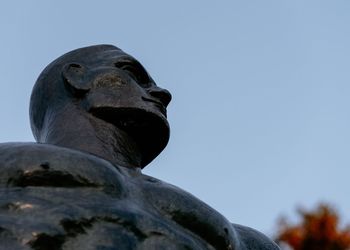Why We Fail Under Pressure

Why We Fail Under Pressure
Sian Beilock, M.A. ’00, Ph.D. ’03, cognitive scientist and Ivy League president, has the answers.
November 17, 2023If you think the pressure of being the first female president in Dartmouth’s 254-year history will cause Sian Beilock to choke, think again.
At MSU, Beilock earned a master’s degree in psychology and a joint doctorate of philosophy in psychology and kinesiology. She’s one of the world’s premier cognitive scientists, and an expert in the physiological and cognitive processes that cause people to choke under pressure—at work, in the classroom and on athletic fields.
A National Academy of Sciences award winner, her research is widely quoted in numerous national media outlets. And she has authored more than 100 peer-reviewed scientific papers and two critically acclaimed books.
“I’m really interested in how we learn and perform at our best,” Beilock said, “and specifically why we sometimes fail to perform up to our potential when we’re stressed out.”
People choke when nerves, anxiety and self-doubt crowd out working memory, the mental workspace within the brain’s prefrontal cortex that helps us sort information and solve problems.
One focus of her research explores how the choking phenomenon affects students with math anxiety, an acute problem among girls. The mother of a 12-year-old daughter, Beilock is particularly attuned to the issue.
A variety of techniques can minimize the effects of anxiety. You know the old adage, “When the going gets tough, the tough…” sing a song or do some journaling. No, really! These techniques, Beilock said, can help students create a mental distance from stress and declutter working memory.
“In stressful situations, we worry about the consequences,” she added. “I’ve found that there are ways to make the worry less distracting.”
Beilock, an accomplished high school soccer goalkeeper, said people can consciously control only so much simultaneously, and fail when they pay “over-attention” to performance aspects that should be left outside of conscious control.
Originally from Berkeley, California, she came to East Lansing to study under Deborah Feltz, then chair of the Department of Kinesiology, who Beilock calls “absolutely amazing.” Beilock quickly learned that her interests in performing under stress went beyond the sports realm, so Feltz connected her with MSU cognitive psychology professor Thomas Carr. The pair became her Ph.D. advisors.
“It was such an incredible experience to have faculty who were excited to help me pursue my interests across academic areas and across departments,” Beilock said. “The idea that these famous professors wanted to help me and to think with me, it formed how I mentor my own students and how I lead. I can’t say enough good things about my experiences. When you have great mentors, anything is possible.”
Beilock conducted additional research at University of Chicago, where she earned tenure as a psychology professor at age 32. She was also a member of UC’s faculty committee and served as executive vice provost.
In 2017, she became president of Barnard College, a role she relinquished in 2023 when she accepted the Dartmouth position, becoming the youngest current Ivy League president at age 47.
An avid sports fan, Beilock de-stressed during her six years at MSU by attending football, hockey and basketball games with friends. “I loved the sports there,” she said.
These days, if faced with a particularly stressful day in Hanover, New Hampshire, you might find her singing her favorite Eagles song, appropriately: “Take It Easy.”
Photos curteousy of Dartmouth/Katie Lenhart
Contributing Writer(s): Aaron Halabe, '84




